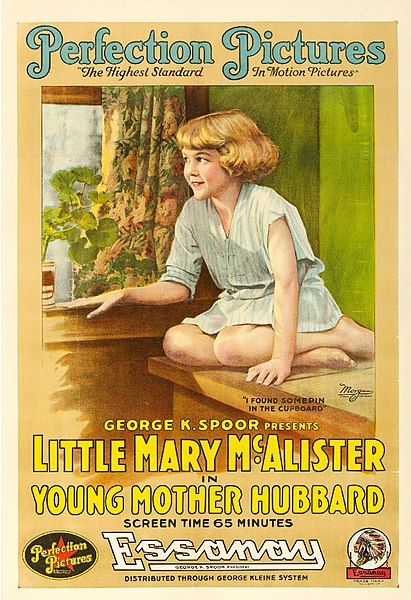
The Thammasat University Library has acquired a new book that should be useful for students interested in film, media and communication studies, Asian culture, political science, sociology, activism, and related subjects.
Movies to Save Our World: Imagining Poverty, Inequality and Environmental Destruction in the 21st Century is by Professor Kenneth Paul Tan, who teaches politics, film, and cultural studies at the School of Communication, Hong Kong Baptist University.
The TU Library collection includes other research by Dr. Tan.
The publisher’s page for Movies to Save Our World explains:
Through a close analysis of more than seventy popular documentaries and feature movies from around the world, produced in the twenty-first century, this book explores the theme of poverty, inequality, ecological degradation and revolutionary change, all associated with a contemporary crisis of neoliberal globalization in a world where it has become so pervasive. Profit rules, while poverty and inequality make the political ground fertile for populist manipulation. By returning power to the people, healthier forms of populism can lead the way to progressive revolutionary change that enriches democracy and corrects for social injustice. However, through ideological and political manipulation, populism can also take more debased authoritarian forms, promoting conformism, domination, exploitation, marginalization and degradation of humanity and its habitat. The book urges progressive moviemakers to take advantage of advancements in digital technologies and to collaborate, in post-pandemic times, with educators to develop public deliberation skills and inspire a new generation of informed and compassionate change-makers.

Dr. Tan’s personal website lists the book’s chapters:
- What is Wrong with Our World Today?
- The Populism of Michael Moore, Working-Class Hero
- Corporate Greed: Health, Education, and Criminal Justice
- Destroying Our Planet
- Narrating Poverty, Inequality, and Revolution
- Capitalist Psychos and Cinematic Zombies
- Can Movies Really Save Our World?
Among the movies discussed by Dr. Tan are 28 Days Later, American Psycho, An Inconvenient Truth, Black Panther, Capitalism: A Love Story, City of God, Crazy Rich Asians, Dark Victory, Dawn of the Dead, Downton Abbey, Joker, Parasite, Roger and Me, Shaun of the Dead, The Hunger Games, The Matrix, The Purge, The Texas Chainsaw Massacre, Train to Busan, Twister, and Wall Street.

In a scholarly article published in 2018, A thoughtfully pragmatic Singapore, Dr. Tan wrote:
In the next decade, Singapore’s most challenging problems will likely result from two mutually reinforcing global trends. They are neoliberal globalisation and authoritarian populism. To avert dystopian futures that can result from being stuck in the intersection of these two trends, Singapore must turn away from debased and irrelevant forms of pragmatism to more thoughtful forms. That is to say, Singapore needs to embrace a pragmatism that is not, ironically, trapped within dogmatic assumptions about nature and circumstance, that does not amount to blind faith in the market, and is not simply addressed to a middle ground construed as a simplistic calculation of some imagined numerical majority’s preferences. Instead, for Singapore to be resilient in the face of these destructive global trends, its pragmatism needs to be transformative, animated by the exercise of philosophical judgement, energised by creativity and optimism, enabled by civic skills and democratic capabilities, and freed from the crippling effects of a politics of paranoia and mistrust.
Neoliberal globalisation, a global trend since the 1970s, has seen the vigorous promotion of markets in countries around the world through policies of privatisation, liberalisation, deregulation, and free trade. In many countries, including Singapore, this has not led to a rolling back but a strengthening of the state. Singapore’s Government is now even more technocratic, managerial, business-minded, elitist, and – one might argue – authoritarian as it asserts greater, more sophisticated, and technologically assisted social control to advance the economic growth agenda. Prioritising economic growth by making the local labour force conducive to the profit-making agenda of the international business elite can have a debilitating impact on democracy and the more socially progressive and egalitarian goals of a country. Culturally, neoliberalism can also degrade a society’s values or make it near impossible to forge new ones. For example, a sense of community, solidarity, and moral responsibility can easily break down into a crude form of economic Darwinism. Such a society encourages selfish and competitive individualism, celebrates individuals who have succeeded according to the narrow and sometimes superficial terms of the market, and demonises those who have fallen through the cracks as being completely at fault for their own failure. Such a society, whose perverted belief in meritocracy has obscured the social, cultural, and economic forces that bestow systematic advantages to some while limiting opportunities for others, can generate egotistical winners convinced of their own superiority and hard work, and of how much they deserve their winnings, which are never enough. Outside the winners’ circle, people helplessly and grudgingly come to accept their failures as a result of their own shortcomings, increasingly blind to the malfunction of social mobility. With the intensification of globalisation and the widely anticipated technological disruptions to the economy in city-state Singapore, income, wealth, and other social inequalities will widen and deepen further. The cost of living will continue to rise and more groups of Singaporeans will be, or at least feel, poor in a dense city ranked among the world’s wealthiest. These trends will have a negative effect on social, physiological, and psychological well-being. And yet, instead of endeavouring to ensure social security and a dignified life for all by redistributing the nation’s resources more generously and ingeniously, policymakers seem determined to continue to hoard the nation’s wealth in the dogmatic belief that more generous assistance will lead to laziness and dependency. They seem determined to keep Singapore’s labour costs attractively cheap for foreign investors and to advise its people to live frugally, an approach that is aligned with the austerity that neoliberal globalisation demands. If these conditions persist, Singapore is headed for a future when its already multicultural society will become polarised or fractured in more complicated and problematic ways, with generalised trust and social capital becoming a rapidly depleting resource. Such conditions provide fertile ground for authoritarian populism to take root. All that needs to happen is for a charismatic demagogue to take advantage of visceral feelings of hardship and resentment, with a view to mobilising a collective sense of victimhood directed against a demonised establishment. The demagogue rallies a mass following and assumes political leadership by making irresponsible and unfeasible promises they cannot keep, while quietly drawing personal benefit from the tenaciously neoliberal regime. The public sphere as a space for deliberating on matters of public morality is reduced to distractive moral panics raised against typical scapegoats such as foreigners, minoritised racial and sexual groups, unwed mothers, and teenaged gangs.

(All images courtesy of Wikimedia Commons)
